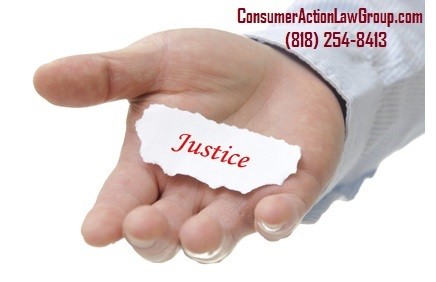 The Fair Credit Reporting Act (FCRA) protects you against misreporting of your credit information to credit reporting agencies or misuse of your credit information. The violation of FCRA provisions will cause lower credit score, lenders’ denials of credit, higher interest rates, and closure of your existing accounts. If you need legal help to dispute a credit report, contact our attorneys immediately. Our attorneys help to guide you on how to dispute a credit report successfully. We help to prevent violation of FCRA.
The Fair Credit Reporting Act (FCRA) protects you against misreporting of your credit information to credit reporting agencies or misuse of your credit information. The violation of FCRA provisions will cause lower credit score, lenders’ denials of credit, higher interest rates, and closure of your existing accounts. If you need legal help to dispute a credit report, contact our attorneys immediately. Our attorneys help to guide you on how to dispute a credit report successfully. We help to prevent violation of FCRA.
There are three major credit reporting agencies that lenders use to obtain your report: Equifax, TransUnion, and Experian. It is important to obtain your credit report from all three reporting agencies since the information may vary from agency to agency. You may obtain your report from each credit reporting agency free of charge, every 12 months by visiting freecreditreport.com to obtain your report free of charge.
If you see that your credit report contains information that is not accurate or the information is outdated, you may take action to clean your credit report. In order to clean your credit report, you should know how to dispute a credit report and what information you may dispute. The only information that you may dispute is information that was inaccurately reported or is outdated information. The information that is negative but accurate may not be disputed unless it is outdated.
How to Successfully Dispute a Credit Report – What You Should Look For
Here is a checklist of some of the information that you should look in your credit report:
- Incorrect or incomplete personal information; such as: name, address, marital status, employment information.
- Incorrect credit information; such as: late payments that you have paid on time, closed accounts that are listed as open, delinquent account that is seven years or more old, accounts that incorrectly state you as a cosigner, etc.
- Incorrect public record information; such as: state a lawsuit that you were not involved in, bankruptcies that you did not file, bankruptcies you filed more than ten years ago, tax or judgment that you paid but it is listed as unpaid.
- Incorrect inquiry information; such as: inquiries that you did not authorize.
Our credit report lawyers can show you how to dispute something on your credit report. If you are stuck or want to know what your next steps are, call our office at (818) 254-8413. The consultation is free.
How to Dispute Credit Report Errors
Knowing how to dispute credit report errors can go a long way to protect your credit score from taking a hit. One way to dispute the errors is to write and send a credit dispute letter to the credit reporting agencies. The dispute letter should include a list of all items that you want corrected and the appropriate documents supporting your claims.
When you submit a credit report dispute letter, credit bureaus and your creditors must conduct investigation, correct the inaccurate information, and remove the old information from your report. Failing to follow credit report dispute procedure, creditors and credit reporting agencies are committing a violation of FCRA.
Another violation of FCRA is a release of your credit report to unauthorized persons. According to FCRA, credit report agencies may release your credit report to authorized persons only, such as: employers, landlords, lenders, utility companies, and creditors. If credit reporting agencies or creditors violated FCRA, you will be able to sue them for damages.
Get Free Consultation with Our Credit Report Lawyers
If you feel like you are a victim of FCRA violation, please contact Consumer Action Law Group. The credit report attorneys at Consumer Action Law Group will assist you in filling a law suit against Creditors or Credit Reporting Agencies for violations of FCRA. Call today for a free case evaluation with one of our experienced credit report lawyers, (818) 254-8413.












